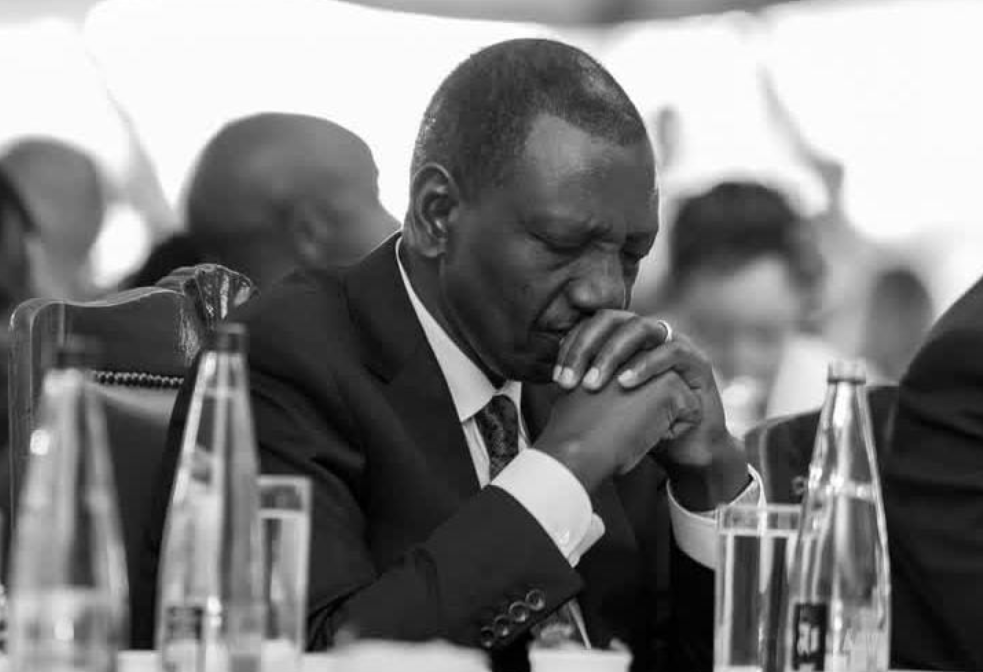US Alarms Over Ruto's Human Rights Record, Sanctions Loom on Kenya!

The United States government has expressed grave concern over what it describes as a significant deterioration in Kenya’s human rights record during 2024. In its latest Country Reports on Human Rights Practices, the U.S. Department of State specifically indicts President William Ruto’s administration for committing severe abuses, particularly during the youth-led "Gen Z" protests in June and July 2024. These demonstrations, initially sparked by proposed tax hikes in the Finance Bill, quickly broadened into widespread anti-government movements after the bill's withdrawal.
Numerous reports detail widespread unlawful killings, enforced disappearances, and torture. The Kenya National Commission on Human Rights (KNCHR) reported at least 60 protest-related deaths, while the Independent Policing Oversight Authority (IPOA) documented 50 fatalities and 199 injuries, attributing them to excessive police force. Allegations of impunity and police brutality are rampant, with the report highlighting arbitrary arrests, prolonged detentions without charge, and the controversial use of hooded, masked officers in civilian attire, despite a High Court prohibition. KNCHR recorded 82 abductions or disappearances since June 2024, with 29 individuals still missing by year's end. Former detainees recounted being threatened by individuals believed to be police officers, warned against online protest dissemination. Human rights NGOs have consistently cited routine torture methods, including severe beatings, stress positions, and electric shocks during interrogations.
“Impunity was a serious problem across security agencies,” the U.S. report emphatically states, accusing the Kenyan government of failing to acknowledge abuses or hold officers accountable for actions during the Gen Z demonstrations. Rights groups further claim that disciplinary transfers and deliberate obstruction of investigations were employed to shield officers’ identities from accountability.
Concerns extend to transnational repression, with Washington accusing Kenyan authorities of complicity in cross-border crackdowns on dissidents. A notable incident in July 2024 involved the arrest in Kisumu and forcible return to Uganda of a registered Ugandan refugee and 36 members of Uganda’s opposition FDC party, who subsequently faced terrorism-related charges. In November, veteran Ugandan opposition figure Kizza Besigye was allegedly abducted in Nairobi by Ugandan agents and driven across the border to Kampala, where he now faces treason charges. While Nairobi initially denied knowledge, Ugandan authorities asserted inter-governmental coordination for the operation.
Attacks on press freedom are also a significant concern. The report details widespread intimidation and violence against journalists, including physical assaults during live broadcasts and instances of media self-censorship following government threats. The Media Council of Kenya documented a minimum of 24 cases of harassment and attacks on journalists during the Gen Z protests, with some reporters targeted with tear gas and detained by police. The inclusion of prominent activist and blogger Francis Gaitho’s arrest and prosecution in the U.S. report underscores mounting international concern. Gaitho, known for his critiques of government policy, was arrested and prosecuted in what rights groups describe as an orchestrated attempt to silence dissent, highlighting the shrinking civic space under the current administration. This acknowledgment also elevates blogging as a legitimate medium of information dissemination, on par with traditional journalism.
Beyond political repression, the State Department flagged additional rights issues, including poor labor law enforcement, hazardous working conditions, persistent child marriage, and ongoing female genital mutilation in certain communities. Despite acknowledging some governmental steps to investigate and punish abuses, the report concludes that “impunity was a problem at all levels of government.” Analysts warn that if these allegations lead to formal sanctions, Kenya could face severe diplomatic and economic repercussions.
You may also like...
Mid-Air Terror: Super Eagles' Flight in Dramatic Emergency Landing

The Nigeria Super Eagles delegation experienced a mid-air scare when their chartered flight from Polokwane to Uyo was fo...
High Stakes Showdown: Super Eagles Battle Benin in Must-Win World Cup Qualifier
)
Nigeria's Super Eagles face the Benin Republic's Cheetahs in a crucial 2026 FIFA World Cup qualifier in Uyo. With Benin ...
Massive Update: Jessica Rothe Confirms 'Happy Death Day 3' Will Conclude Tree's Journey

Fans of the "Happy Death Day" franchise can rejoice as star Jessica Rothe confirms the third film is in the works. While...
Sean Penn Joins Lumière Festival in France as Park Circus Expands Warner Classics Library with Gem-Studded Slate

Sean Penn, guest of honor at the Lumière Film Festival in Lyon, delivered an emotional opening speech celebrating Jack N...
South Africa's Poetic Remembrance: The Lasting Echo of Sarah Baartman

A new documentary delves into the life of Sarah Baartman, moving beyond exploitation to highlight her depth, multilingua...
Celebrity Shockwave: Katie Price's New Look Ignites Public Worry!

Katie Price has sparked alarm among fans with a recent Instagram post showcasing dramatic weight loss, fueling fears abo...
Strictly Stunner: Shocking Spoiler Leaves Fans Breathless and Baffled!

This week's Strictly Come Dancing saw the second elimination results prematurely leaked online, much to the dismay of fa...
Madame Tussauds London's Quirky New Exhibit: A Wax Sausage Roll Joins the Stars

Madame Tussauds London has unveiled its first-ever food item wax figure: a Greggs sausage roll. This unique addition cel...

